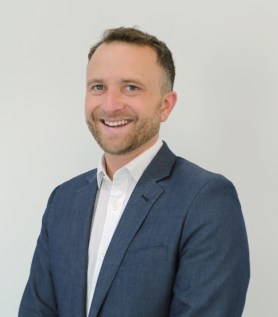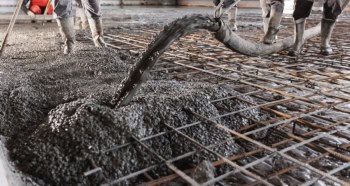With their mix of technical knowledge and problem-solving skills, physics graduates are ideally placed to tackle the world’s environmental challenges. In the second of a series of articles, Laura Hiscott speaks to three physicists who are doing their bit to build a greener, more sustainable future in the field of policy and behaviour change

Eunice Lo, researcher, University of Bristol, UK
In order to respond effectively to climate change, it’s important to understand its fundamental causes and effects. Eunice Lo is particularly interested in how climate change will affect extreme weather events, with a focus on heatwaves and their impact on human health.
Lo first became interested in this area while studying physics and astronomy at Durham University, UK, where her final-year project looked at how to calibrate telescopes to correct for atmospheric effects on the radiation they detect. “Climate change is also about radiation transfer through components of the atmosphere,” she explains, “with outgoing longwave radiation being trapped by greenhouse gases.”

To pursue this further, Lo did a PhD in atmosphere, oceans and climate at the University of Reading, UK. She found that her physics background helped her to hit the ground running, as she already had some understanding of atmospheric physics and had honed her computer programming skills during her undergraduate degree. Lo also did some Master’s courses in meteorology alongside the first year of her PhD. “That helped me transition from a pure physics background to applying my theoretical knowledge to the environment,” she recalls.
Lo now uses the programming languages Python and R to create climate models and study how global warming will affect the frequency and intensity of heatwaves. Since heatwaves can cause illnesses and even deaths, she then translates those possible future scenarios into projections of human health outcomes.
Crucially, Lo’s research is often included in reports such as the UK Climate Change Risk Assessment Report, which is published every five years, and which government officials use to make decisions about national mitigation and adaptation. She is also a contributing author to one chapter of the latest report published by the United Nations Intergovernmental Panel on Climate Change, and hopes this will prompt new policies on reducing emissions.
Mark Crouch, carbon management team lead, Mott MacDonald
Building a sustainable future is not just about action at a government level – businesses also need to make changes. Mark Crouch, who works at Mott MacDonald, an international engineering consultancy headquartered in the UK, is optimistic that companies are waking up to their responsibilities.
“The conversations with clients have become a lot more mature than they were when I first started in this field around 2010,” says Crouch. “Businesses no longer see sustainability as something they just have to consider to make themselves look good. They understand climate change as a real business risk.”

Crouch went into environmental engineering after studying physics with astrophysics at the University of Leeds, UK. While working on flood modelling and designing flood alleviation schemes, it struck home that global warming was having major impacts. “With something like flood risk, you can’t just keep building bigger dams,” he explains. “That’s what motivated me to get into mitigation and addressing the root causes.”
Crouch did a Master’s in sustainable energy at Imperial College London, which he found prepared him well for consultancy, and he now heads up the 100-strong and growing global carbon management practice at Mott MacDonald. His team in the UK works closely with bodies such as the Environment Agency and National Grid to understand the carbon impacts of major infrastructure projects such as HS2 on a full-life-cycle basis, and advises clients on how to reduce them. They also look at how emerging technologies fit in.
The full-life-cycle analysis is important because infrastructure often has a big carbon footprint not just when it is up and running but also when it is being built. Crouch notes that if cement manufacturing were a country, it would be the third biggest emitter of greenhouse gases, behind the US and China. “There’s a huge need for people to tackle that through developing new materials and approaches,” he says. “That’s another area of opportunity for people with science backgrounds, including physics.”
For graduates interested in sustainability, Crouch’s advice is to take all the opportunities you can for doing industrial placements, and to be proactive about building your network through webinars and industry forums. He also recommends reading widely across different subjects, as climate change is a highly multidisciplinary challenge.
The climate emergency requires immediate and sustained action, and the sector needs graduates who are passionate about making a difference
Mark Crouch
“It’s a really booming market,” Crouch says. “The climate emergency requires immediate and sustained action, and the sector needs graduates who are passionate about making a difference.” Among the skills that physicists can contribute, he notes the importance of understanding how to work with numbers and uncertainties, as well as the ability to think big. “Topics like cosmology and astrophysics really teach you to think on a different timescale, and outside of the day-to-day.”
Rosemary Pickering, senior sustainable business analyst, Farfetch
In addition to seeking advice from external consultants, many companies are putting together sustainability strategies and employing people in-house to drive progress towards their goals. Rosemary Pickering has combined her environmental values with her interest in fashion by working as a senior sustainable business analyst at Farfetch, a luxury fashion marketplace, which sells everything from handbags to activewear by high-end designers.

While studying courses in environmental and atmospheric physics as part of her physics degree, Pickering decided that she wanted to do a sustainability-related Master’s, so she enrolled in an MSc course on environmental technology and policy at Imperial College London. “That gave me a completely different perspective on sustainability and the environment,” she says. “Within that, I did a project looking at sustainable fashion.”
In her current role at Farfetch, Pickering focuses on the firm’s sustainability strategy, which has three main “pillars”. One is to encourage customers to switch to purchasing more sustainable options by providing information on the environmental and social impacts of different products. Another is to work towards net-zero carbon emissions by 2030, by minimizing the distance products have to travel, choosing the greenest transport methods and shipping each product in the smallest box possible. Finally, Farfetch has launched several circular services, whereby customers can resell products they are no longer using, or have items fixed or updated, instead of buying new ones.
Pickering’s role covers all three of the pillars, and involves reporting on trade performance and looking at which more sustainable products, such as items made of organic cotton, are selling. She also monitors which circular services customers are using, and Farfetch’s overall progress towards its sustainability goals.
Green jobs for physics graduates: decarbonizing energy sources
“One of the projects I’ve really enjoyed working on was our Conscious Customer Report, which we published externally,” she says. “A lot of people in the [fashion] industry talk about changing trends and patterns, and you can actually see it coming through in the data, which is really exciting.”
Having a physics background has helped equip Pickering with the skills she needs for her job, as she has to be confident with calculating the statistics she is reporting, and also needs to use coding skills in Python for her day-to-day tasks.
For graduates looking for green jobs, Pickering emphasizes that there are more opportunities than you might think. “Many small businesses have a marketing or operations team where 50% of the role is focused on sustainability, because that’s embedded in the company’s mission,” she explains. “There are a lot more jobs out there than just the ones that have ‘sustainability’ in their titles.”




